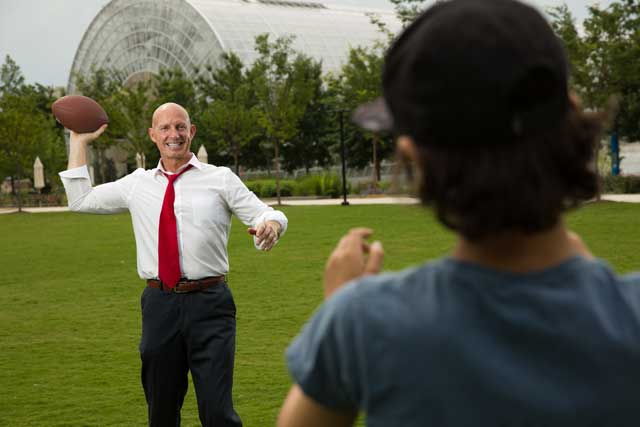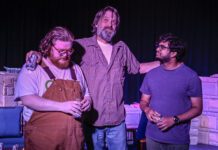
[dropcap]Darrell[/dropcap] Weaver knows what the drug problem in Oklahoma looks like. He looked it in the face every day for more than 28 years as he fought back. But he shares how he never lost sight of the tragic loss of human capital – family loss – that each incarcerated individual represented. He described “watching kids sitting on couches while their mother and father are being handcuffed and taken to jail.” Weaver shared that roughly 75 to 85 percent of incarcerated individuals are involved in some kind of substance abuse issue.
“We’ve got a huge problem,” he says.
Weaver spent nearly three decades as a law enforcement officer, working his way up in the Oklahoma Bureau of Narcotics all the way to director in 2006. Shortly after taking on his role as director, Weaver started to have a shift in his perspective.
“We’ve got to do something preventative,” he says. “We’re not going to arrest our way out of this problem of drugs.”
He had started to realize what a generational issue drugs really were. “You arrested the grandfather, maybe the father, now the son’s doing it,” he says of the illegal drug business. He also recognized the influence parents have over the future choices of their children. “Kids with parents who are incarcerated are five times more likely to be incarcerated themselves,” Weaver says.
So a few years later, the Bureau of Narcotics, led by Weaver, began enhancing their education programs. He realized the importance of reaching kids at a young age and helping them realize they didn’t want to get involved with substance abuse. “We’ve got to keep them from these torments and this peril of drug abuse,” he says.
Then Weaver was introduced to Big Brothers Big Sisters of Oklahoma and the power of the one-on-one mentor relationship. As director of the Bureau of Narcotics, he was often asked how the generational drug problem in Oklahoma was going to be solved, and BBBSOK offered one big piece to that puzzle.
Big Brothers Big Sisters connects children in a community with carefully vetted adults who serve as one-on-one mentors. The national organization started in 1904. “We are really what we call the gold standard of mentoring,” Weaver says. He uses the term “we” because in 2015, two days after retiring as director of the Oklahoma Bureau of Narcotics, Darrell Weaver became the chief executive officer of BBBSOK.
The passion in Weaver’s eyes is evident when he relates how the “littles” are children who need the care and compassion provided by a one-on-one mentoring relationship. Many of them come from homes where there is some sort of stress on the family: an incarcerated parent, a single-parent home or perhaps grandparents raising grandchildren.
“The power of Big Brothers Big Sisters – there’s a couple of them, but one is the outcomes,” Weaver says. Weaver reports statistics such as drastic improvements in scholastics, relationships and confidence as well as decreases in truancy, drug use and early parenting. He is excited to be addressing the crime in the state from a new perspective. “We don’t have all the answers, but we have an antidote for incarceration,” he says.
Weaver firmly believes that at BBBSOK, they have at least one answer to the incarceration and drug problem in Oklahoma.
“We have that special piece of the puzzle,” he says. “We’ve got a corner piece of the puzzle at Big Brothers Big Sisters.”

























